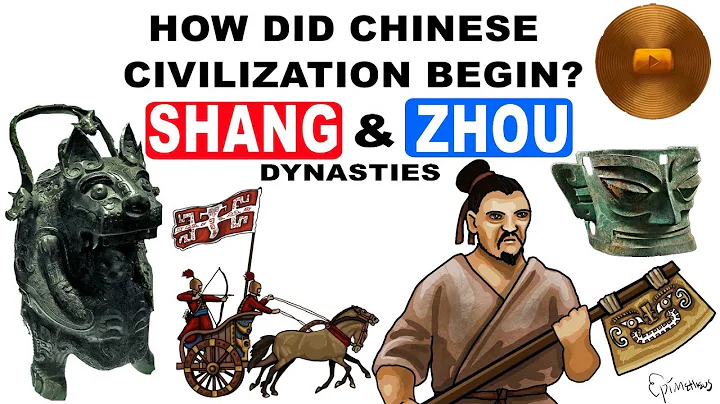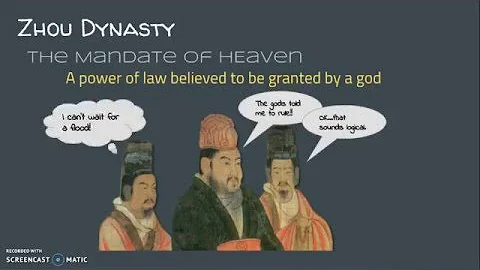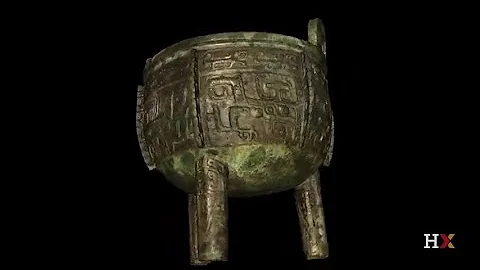As the first vassal state enshrined after King Wu conquered Shang, Lu's Qi State had a unique status in Zhou Dynasty and was an important fulcrum for the Zhou Dynasty to rule the east. In the following hundreds of years, Qi State The country created a brilliant Qi culture.
So, where did the name "Qi" of the Qi State, which played an important role in the history of the pre-Qin Dynasty, come from? "Historical Records of Qi Taigong Family" only said that King Wu of Zhou Dynasty "confessed his master to his father in Qiyingqiu". It seems that Yingqiu was directly under the Shang Dynasty and became an unclaimed land after the demise of the Shang Dynasty. But this is not the case. oracle has revealed a history that has been covered in dust for 3,000 years.

The word "Qi" in Oracle
The word "Qi" in Oracle is generally considered to be the image of the upper ends of three wheat ears, which are slightly high and low. Therefore, the original meaning is considered to be the neatness of the grain ears, and was later extended to mean remediation, arrangement, etc.
Xu Shen of the Eastern Han Dynasty's " Shuowen Jiezi " records: "Qi means that the ears of grain and wheat are flat on top. Pictogram." In other words, Xu Shen believes that the word "Qi" is based on the image of wheat ears.
connects the origin of the word "Qi" with wheat ears, and there is another important evidence, that is, the word "来".

The original meaning of the word "来" in the oracle bone inscriptions is actually wheat. On the contrary, the original meaning of the word "mai" is to arrive. The original meanings of the two words are reversed. It is unknown why the ancients made the mistake.
Guo Moruo believes that the place name with "Lai" is "Lai". In other words, the Lai people on the Jiaodong Peninsula should have been called "Laiguo". They first planted wheat on a large scale. The place named after "Lai" is not far from Linzi, the capital of Qi State ( Zibo ).
Therefore, it is conceivable that wheat has been cultivated in the area for a long time, so the ancients created the word Qi based on the image of wheat ears being uniform, and this place was also called "Qidi".

However, there is another interpretation that has nothing to do with wheat ears, but stems from Jishui . The reason is very simple. The earlier shape of the word "Qi" in oracle bone inscriptions was circular. Later, the lines evolved into straight lines and evolved into rhombus. This may be related to the fact that circles were not easy to inscribe when tortoise shells were carved. Xu Shen may not have seen the oracle bone inscriptions, but saw the glyphs related to the Zhou Dynasty, and mistakenly thought they were wheat ears.
Regarding Jishui, "Yugong" records this: "The diversion water flows eastward to become Jishui, enters the river, and overflows into Yingshui; it leaves Taoqiu in the east and reaches He in the east; and it meets Wen in the northeast. ; and north, and enters the sea in the east. "The ancients believed that Jishui has many sources, starting from the Nishui River in Wangwushan, Henan. In the process, it disappeared underground, passed through the Yellow River, , and then surfaced to join the northern Jinan Ji River. Hidden and appearing three times, mysterious and unpredictable, it merges into the sea without hesitation.
Therefore, the Qi character in Oracle Bone Inscriptions has upper and lower extension lines on the three circles: the first expression may be that Jishui comes from multiple sources. It is said that three circles are listed, that is, three means many; at the same time Because Jishui is hidden three times and then appears three times, each time it appears, it is like spring water gurgling out, shaped like a circle, and the spring water has a source and a destination, so it is expressed by up and down extension lines.
In short, judging from the oracle bone inscriptions and literature, the word "Qi" originated from wheat or Jishui, and then "Qi" was formed.

Qi State in oracle bone inscriptions
In the pre-Qin period, country names generally evolved from place names. Zhou Dynasty in the Zhou Dynasty originated from Zhou Yuan, Lu State Lu originated from Lu Di (originally located in Lushan County, Henan), etc., Shang During the period of the Han Dynasty, a "Qi State" also appeared in Qi.
The Southern Song Dynasty "Lu Shi·Guo Ning Ji 1" records: "The Marquis of Qi, the hometown of the Boling family, was named after Tian Qiyuan. Lu Shang was restored to the capital Yingqiu, which is now Linzi in Qingzhou (Qingzhou)." In other words, there was a state of Qi in the Shang Dynasty. King Wu destroyed it when he attacked Zhou . After that, King Wu of Zhou sealed Jiang Ziya in Qi.
However, " Lu Shi " is the earliest document that puts forward the "Shang Dynasty Qi State" and "Lu Shang restored the title". Previously, this period of history was not found in "Zuo Zhuan", "Historical Records" and other historical books, so whether the Shang Dynasty was really The existence of Qi State is actually very controversial. After all, the Southern Song Dynasty was 2000 years away from the Shang Dynasty.After the oracle bone inscriptions were unearthed, people discovered that at least the "Shang Dynasty Qi State" had appeared during the King Zhou period. It is hard to say whether it was the "homeland of the Boling family".
Oracle bone inscriptions record: "Guisi divination, the death of King Zhenxun was in disaster. In the second month, he was in the army of Qi. King Wei came to recruit people. The divination of King Si, the death of King Zhenxun was in disaster. The king... was in the army of Qi in the evening. )..."

The so-called "Ren Fang" means "Yi Fang", a powerful Fang Kingdom among the Dongyi ethnic group, probably located in Linyi, Shandong. It rebelled about ten years after King Zhou succeeded to the throne. From then until the demise of the Shang Dynasty, the war between the two sides was not completely over. At that time, in order to attack Dongyi, King Zhou sent troops many times to join the troops of Qi, and then joined forces to conquer Dongyi.
Regarding the word "Qi" in the oracle bone inscriptions, Guo Moruo interpreted it as follows: "Qi was the predecessor of the Qi State. It was the overthrow of the old state in the Yin Dynasty. The Zhou people destroyed it and established a new country, but it still had its old name. Qi in the Yin Dynasty should refer to the capital camp of Qi. Near Qiu, today's Linzi, Shandong. "
It can also be seen from the oracle bone inscriptions and divination that Qi State in the Shang Dynasty often cooperated with Yin Shang to attack Dongyi. He should be a die-hard prince of Yin Shang and had an unusual position in the dynasty. After King Wu defeated Zhou, he was the first to consecrate Jiang Ziya, which showed that King Wu of Zhou attached great importance to aligning with the local area and wanted to use Jiang Ziya's ability to suppress the powerful local rebel forces. Therefore, behind the establishment of Lu's Qi State, there may be a history of bloody suppression of Qi State in the Shang Dynasty.

It can be seen that Qi has a long history. The place name originated from wheat or Jishui. At least in the late Shang Dynasty, there was "Qi State". The reason why the name of the Qi State of Lu family is called "Qi" is that it inherits the name of the previous country, just like "Tian family replaced Qi" later.
Reference materials: "Historical Records", "Research on the Origin of Qiming", etc.





















